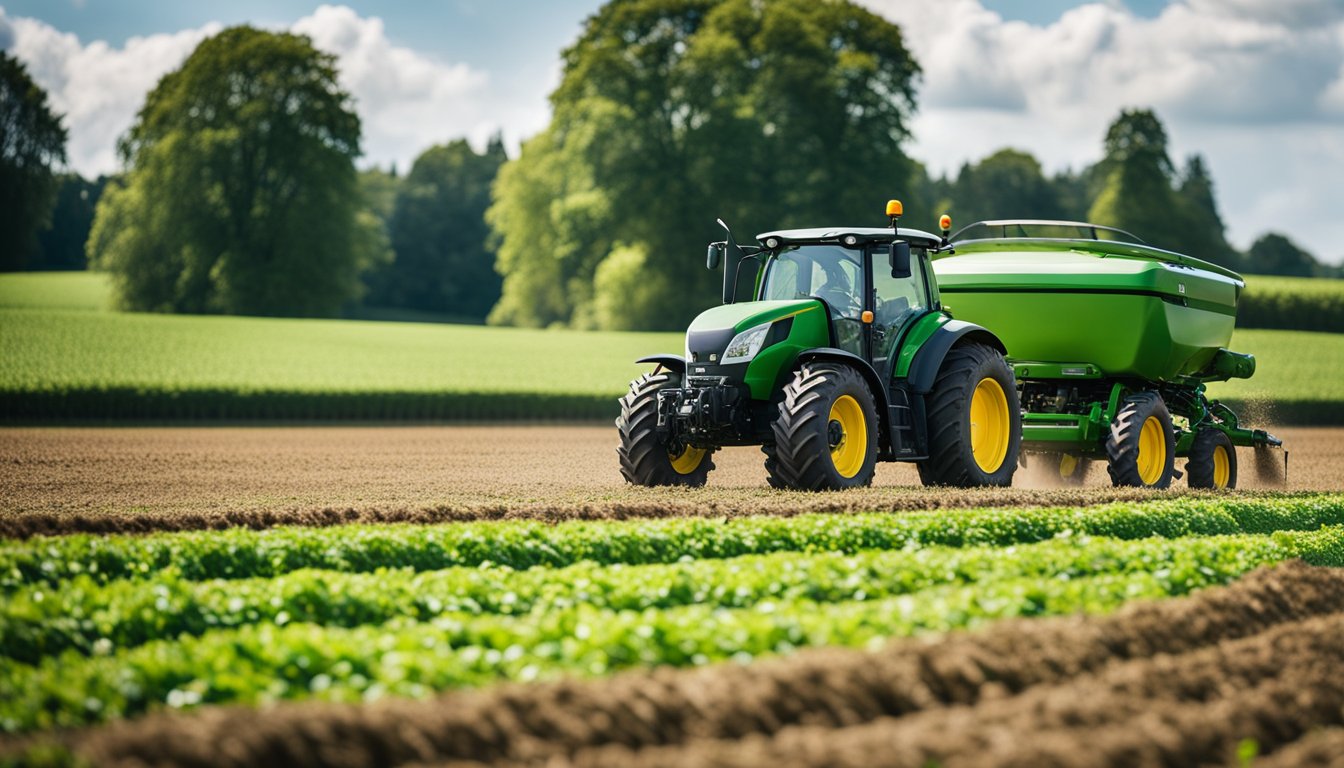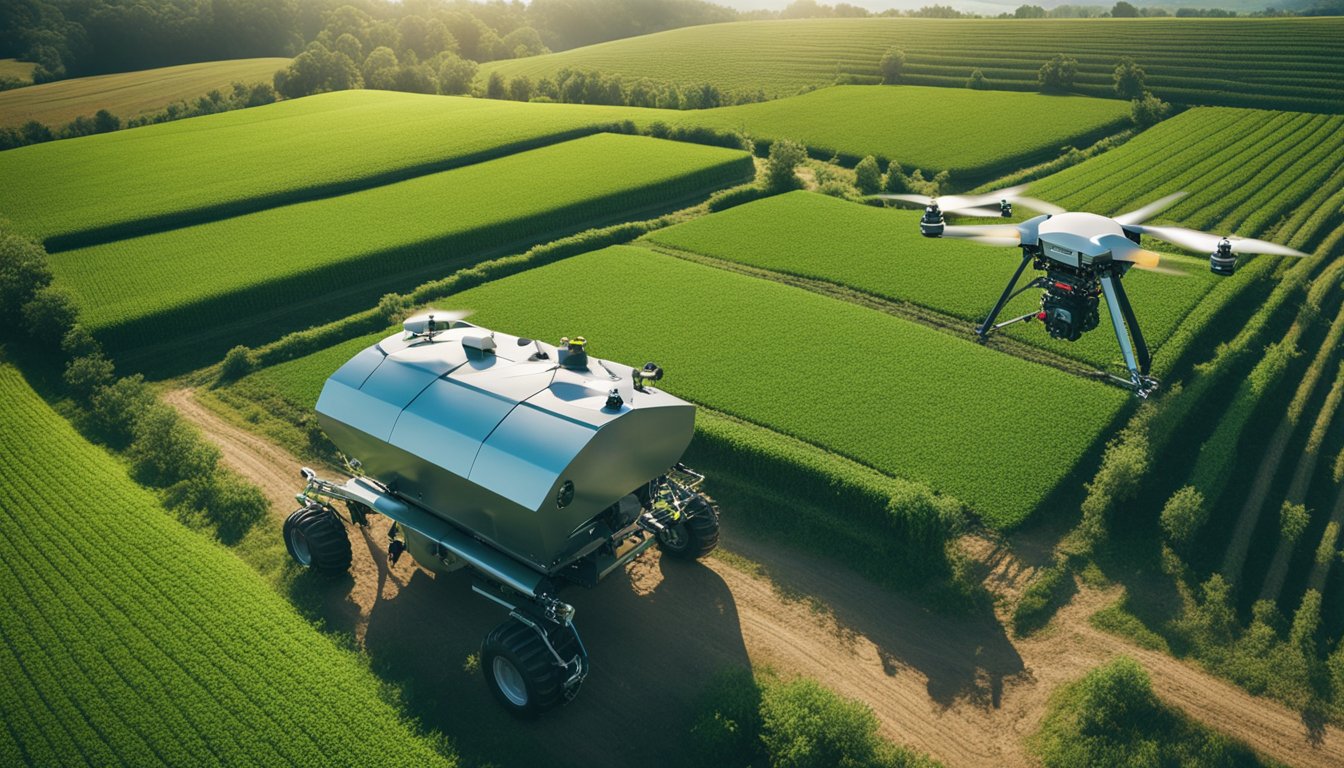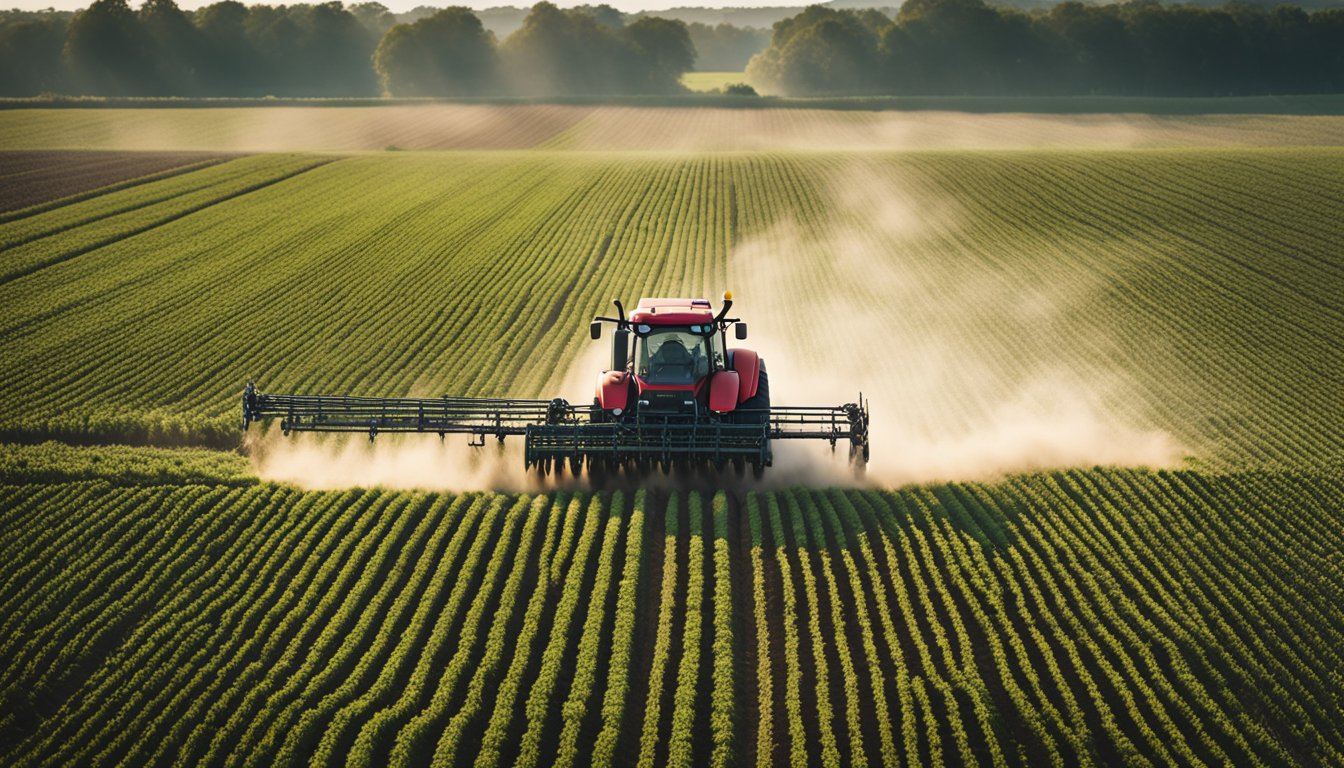Late updated: 05 May 2025 11:05
Written by: Oliver Bennett
AI-Powered Agriculture Tools For UK Farms: Transforming Modern Farming Practices
As we step into an era where agriculture blends seamlessly with technology, UK farms are embracing a new wave of AI-powered tools. These innovations are not just reshaping traditional farming practices but also offering sustainable solutions to long-standing challenges. From precision farming to digital simulations, AI technologies are enhancing efficiency and productivity on farms across the country. These tools are pivotal in helping farmers make informed decisions, optimising resource use and minimising environmental impact.

With AI-driven precision farming techniques, farmers can now implement smart solutions that significantly increase crop yields and reduce waste. The integration of digital twins allows for the simulation of different environmental conditions, aiding in optimal planting strategies. AI tools are also pivotal in addressing climate concerns by helping reduce greenhouse gas emissions associated with livestock farming.
By incorporating such technologies, UK agriculture is on the cusp of a transformation. As we explore these tools and their impact, it becomes clear that AI is not just an addition to farming practices—it’s a fundamental shift towards a more sustainable future.
Key Takeaways
- AI tools enhance decision-making and resource optimisation.
- Digital simulations aid in effective planting strategies.
- AI contributes to reduced emissions and sustainable practices.
AI-Powered Tools Transforming UK Agriculture
Artificial intelligence is reshaping the agricultural landscape in the UK. Through innovative tools, AI facilitates precision, efficiency, and sustainable farming practices, helping farmers optimise resources while addressing environmental concerns.
Precision Farming Technologies
Precision farming technologies leverage artificial intelligence to enhance farming accuracy. By integrating AI with sensors and IoT devices, farmers gain detailed insights into soil conditions, crop health, and weather patterns. This enables them to apply water, fertilisers, and pesticides more efficiently, reducing waste and improving yields.
Drones equipped with AI capabilities survey fields and provide real-time data, aiding in targeted interventions. These technologies reduce manual labour and resource consumption, making farms more sustainable. Farmers can now monitor crops more closely, leading to timely decision-making and increased productivity.
Machine Learning Applications on the Farm
Machine learning applications transform how farmers predict and respond to various agricultural challenges. Algorithms analyse huge datasets from multiple sources, identifying patterns in crop growth, pest infestations, and weather trends. This predictive capability allows for proactive measures, minimising losses and maximising output.
For livestock, AI-driven monitoring systems use machine learning to ensure animal health and welfare. Cameras and sensors track behaviour and detect anomalies, allowing for quick responses to potential health issues. This not only safeguards livestock but also improves farm profitability by reducing veterinary costs.
Data-Driven Decision Making
Data-driven decision-making is key to modern farming, and AI plays a pivotal role in analysing and interpreting agricultural data. By processing information from sensors, satellite imagery, and other sources, AI tools help farmers make informed choices about crop rotation, resource allocation, and planting schedules.
These insights lead to more precise farm management strategies, maximising yields while minimising environmental impact. Decision-support systems powered by AI offer tailored recommendations, helping farmers meet specific goals related to sustainability and profitability. As a result, UK agriculture benefits from data that improves both productivity and ecological stewardship.
Benefits And Challenges Of AI In Sustainable Farming

Implementing AI in sustainable farming offers numerous advantages, like increased efficiency and productivity, but it also presents certain challenges. We explore how AI can enhance crop yields, support conservation practices, and the obstacles we face in adopting these cutting-edge tools.
Enhancing Crop Yield and Resource Efficiency
AI-powered tools such as precision farming technologies vastly improve crop yield by optimising planting strategies and irrigation. These tools analyse data on soil conditions and weather patterns, allowing us to allocate resources precisely where they are needed. This not only boosts yield but also conserves essential resources.
Furthermore, AI assists in pest and disease management. By processing large datasets, AI can predict and detect outbreaks early, enabling timely interventions. This minimises crop loss and reduces the need for chemical interventions, benefitting both the ecosystem and our health.
Supporting Sustainable Farming Practices
AI helps promote sustainable agricultural practices by reducing chemical usage and enhancing soil conservation. Smart sensors and monitoring systems ensure that water and fertilisers reach crops in adequate amounts, preventing waste and runoff that could harm surrounding environments.
Carbon sequestration is another important focus. AI systems can guide us in choosing cover crops and other techniques that improve soil health and capture carbon dioxide. By integrating AI, we make informed decisions that reduce greenhouse gas emissions and increase farm sustainability.
Barriers To Adoption and Implementation
Despite its promise, adopting AI in agriculture faces several barriers. Costs associated with AI technology are significant, particularly for smaller farms with limited budgets. Investing in these tools demands a financial commitment that is not always feasible.
Additionally, there's a need for training and technical expertise. Farmers must understand how to operate advanced systems and interpret data outputs appropriately. This requires structured training programs and ongoing support, both of which can be lacking.
Data privacy and security concerns also pose hurdles. Handling sensitive farm data necessitates robust protocols to ensure confidentiality, making this another area in need of attention as we further integrate AI into farming.
Frequently Asked Questions

In UK agriculture, AI is a groundbreaking force enhancing productivity and sustainability. Let’s explore the prominent applications, strategies, and challenges farmers face as they integrate these advanced technologies into their practices.
What are the leading AI applications currently employed in UK agriculture?
AI applications in UK agriculture focus on precision farming, which involves using sensor data and analytics to optimise farming processes. Key applications include satellite-based crop monitoring and AI-powered farm machinery that automates tasks like harvesting, significantly improving efficiency.
How is AI being used to improve crop yields on British farms?
AI enhances crop yields through precise monitoring and predictive analytics. By analysing data from various sources, AI systems can identify potential issues such as pest infestations or soil nutrient imbalances, enabling timely interventions. This results in healthier crops and more consistent yields.
What strategies are UK farmers adopting to integrate AI technologies into their practices?
UK farmers are embracing AI by upgrading outdated equipment to accommodate new technologies. They are collaborating with tech companies to customise AI solutions tailored to their specific needs. Continuous education and training also play a crucial role in ensuring effective AI adoption.
Which AI-driven agricultural tools have shown the most promise in the UK farming sector?
AI-powered electric farm robots demonstrate considerable promise, streamlining labour-intensive tasks like asparagus harvesting. Additionally, satellite-based agricultural monitoring systems offer precise crop health assessments, aiding in resource optimisation and strategic planning.
How has the use of AI in agriculture impacted sustainability in UK farming?
AI contributes to agricultural sustainability by reducing resource waste. AI technologies optimise water usage, minimise chemical application, and improve soil health. This sustainable approach ensures long-term viability and reduced environmental impact.
What are the key challenges and solutions when implementing AI-driven systems in UK agriculture?
One significant challenge is the compatibility of AI technologies with existing machinery. Farmers often need to update or replace legacy systems. Solutions include government and private sector support for financial assistance and training initiatives, enabling smoother integration and scalability of AI tools in farming operations.
